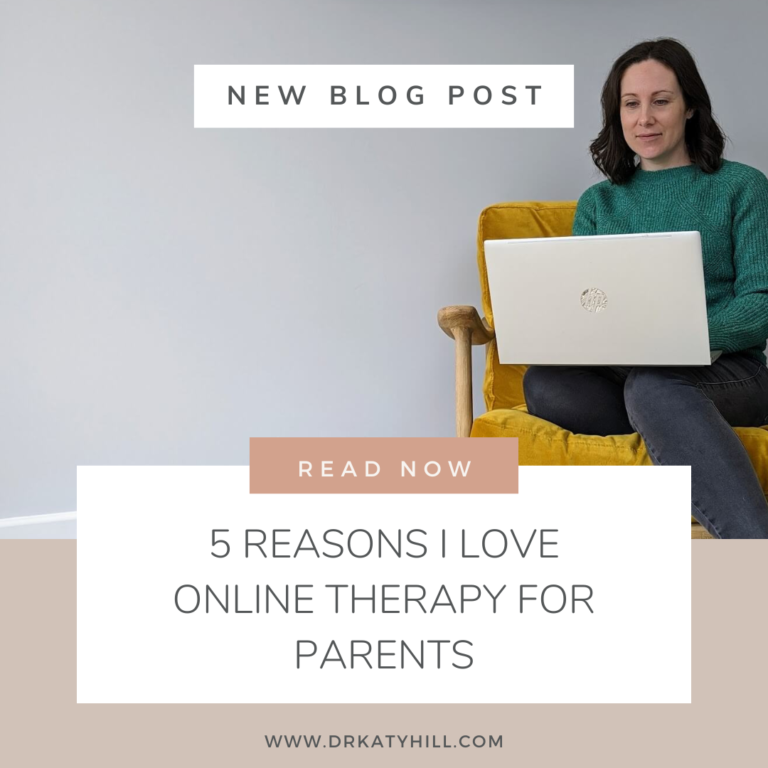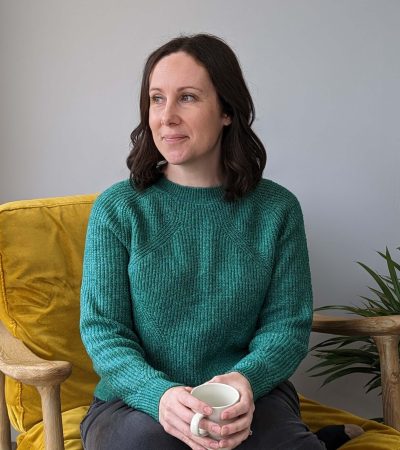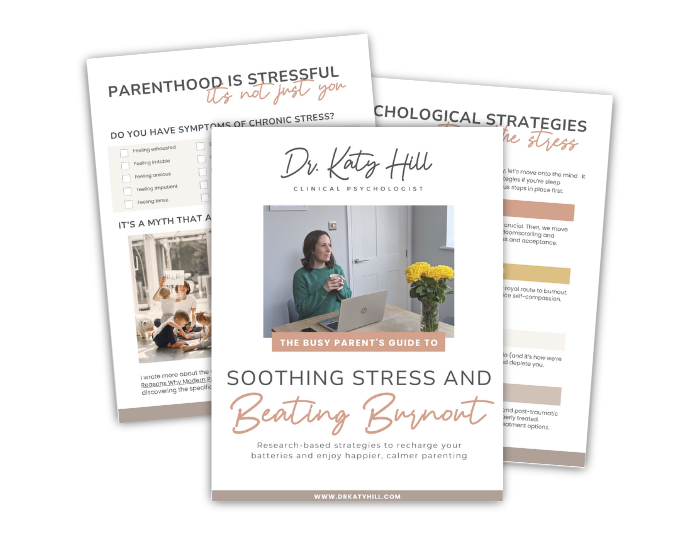Although it is possible to see me in person for therapy (message me for details here); I love offering online therapy for parents. That’s not something I thought I would say pre-covid. I’m a highly sensitive introvert who feels uncomfortable on camera and doesn’t even like talking on the phone. Please say you don’t like phones too? I’m not the only one, right?
Are you curious about online therapy for parental stress and burnout and wondering whether it could work for you? The great news is that research studies suggest online therapy is just as effective as in person therapy (see this study and this study) and it has several advantages to in person therapy.
One of the (few) silver linings of covid and the living hell of online schooling was that everyone got a taste of using Zoom. Or, if you were really unfortunate like our family, Microsoft Teams. Gah. I do not miss those days and neither do my children.
I can’t say that I loved using Zoom at first; my friends will tell you how exactly how nervous and awkward I was in the beginning. I’d avoid it like the plague at first but, through necessity and repeated practice, I grew to feel more comfortable and now I use it all the time and love it. OK, I don’t love being on Zoom ALL day and I need frequent screen breaks but I do prefer it to in person therapy for a bunch of reasons.
I’ve written this blog to tell you the top 5 reasons I love online therapy and my 10 top tips for getting the most out of it.
the top 5 reasons i love online therapy for parents
1. Convenience – Neither of us has to travel to a therapy office. So, this saves us both time driving and finding parking or using public transport. It saves money on parking and petrol or public transport costs. I do have access to a local therapy room if needs be, but I charge an extra £15 per session to cover their room rental fee.
2. Accessibility – I see clients from all over the UK (and worldwide, except for USA and Canada due to their strict laws on therapists needing to be registered in the same state as their clients). Online therapy is much more accessible for those who live in rural areas or places where there are no parental stress specialists. It’s also more accessible for those with health or mobility problems that can make leaving the house difficult. It’s especially attractive for exhausted, burned out parents.
3. Efficiency – It’s much easier to fit in a Zoom session during your busy day if there’s no commute either side of it. You can fit it in during your lunch hour at work if you like. And with no commute; you’re much less likely to be late for your appointment.
4. Privacy – There’s no chance of bumping into that gossipy mum from the school run on the way into my therapy office and you’re not sitting in a waiting room with other people while you’re feeling particularly vulnerable. Plus, I operate a paperless practice so all your data is kept securely in my encrypted specialist practice management software (WriteUpp).
5. Comfort – You can get really comfortable in your own home/car compared to a therapy office. You can wear your joggers, have a blanket over your lap, stroke your cat, sip your favourite hot drink and feel much more at ease opening up to me. I’m a natural sloth; I like doing therapy in my joggers and slippers and shuffling to my kitchen in between sessions to raid my fridge and drink a brew.
I use zoom because it’s the most user-friendly system I’ve found (I’m looking at you Microsoft Teams and Google Meet and shaking my head). If you’re not familiar with Zoom or video conferencing then it’s very normal and natural to be nervous and unsure about what it involves. That’s absolutely how I felt at first. Hopefully my ten top tips below will give you the confidence to give it a go. Booking a 15min free consultation with me is the best way to try it out and see what it’s actually like. You can book in here.
top 10 tips for setting yourself up for online therapy
1. Set up somewhere you won’t be disturbed. Make sure you use a quiet, private area for your therapy sessions; somewhere you can be sure you won’t be overheard or interrupted. I work at home and only when my children are out of the house.
2. Get some childcare organised for your therapy session. I don’t recommend that you try to access therapy with kids at home – you don’t want them overhearing what we’re talking about and you won’t be able to concentrate properly on our conversation with your children in the room. My kids seem to have a radar for when I need to make a phone call/do something important and they come running to find me!
3. Make sure you’re comfortable with your background. Remember that I can see some of your background so make sure you’re OK with that – but please don’t bother tidying up or set dressing before we meet!
4. Test your camera to make sure your face is placed properly. Try to have your eyes the same height as your webcam so you’re not looking up or down to me far too much which can give our conversation a weird vibe! Make sure your face is well lit so I can see you properly – don’t have your back to a window.
5. Using a laptop or desktop computer is easier and preferable to a mobile phone. You’ll be able to open my Zoom link directly and I’ll have a better view of your face and body language. If you must use your phone then you’ll need to download the Zoom app. Make sure the phone is fully charged and please stick it in a stand, you don’t want to be holding it up for 50 minutes! It can be more tricky to have an eye to eye conversation on a phone too – your phone’s not at a great height if I’m looking straight up your nostrils.
6. Check you have a strong internet connection. WiFi is usually fine but it’s not 100% reliable. It’s better to use your ethernet cable to plug directly into the router if you can but don’t worry if you can’t. Sometimes we’ll get disconnected and we’ll work around that. Usually a disconnection is temporary and we’ll log straight back in but if it’s going on for more than a few minutes then I can call you via Whatsapp or mobile phone (depending on what we’ve agreed in advance).
7. Keep your camera on so I can see your face and body language; it’ll improve our connection. If you find yourself getting distracted by your own face (I do!) then click the three little dots at the top right of your window and select ‘hide self view’ and you’ll only see me. This is what I do, I find I get too distracted if I can see my own face when I’m talking.
8. Make sure your phone is on silent or aeroplane mode if you’re not using it for the call.
9. Be comfortable but upright. Make sure your seat is comfortable enough for 50mins of sitting and please find somewhere that you can sit upright and maintain focus. It’s not ideal to be in bed or lying on the sofa for therapy. Please sit as you would if you were in my office.
10. Minimise distractions. It’s fine to bring a drink if you like but please don’t eat in our sessions; let’s focus on our conversation and our connection together.
Get in touch if you would like online therapy with me
So that’s my thoughts on why you might love Zoom therapy too.
If you’d like to start online therapy with me then book your 15min free consultation Zoom call today here.
The free consultation call is the perfect way to test out Zoom and see how you might find online therapy. I’ll recap my top tips on getting the most out of online therapy during that call and we can make sure you’re all ready to go.
I’ll look forward to meeting you on Zoom soon!








